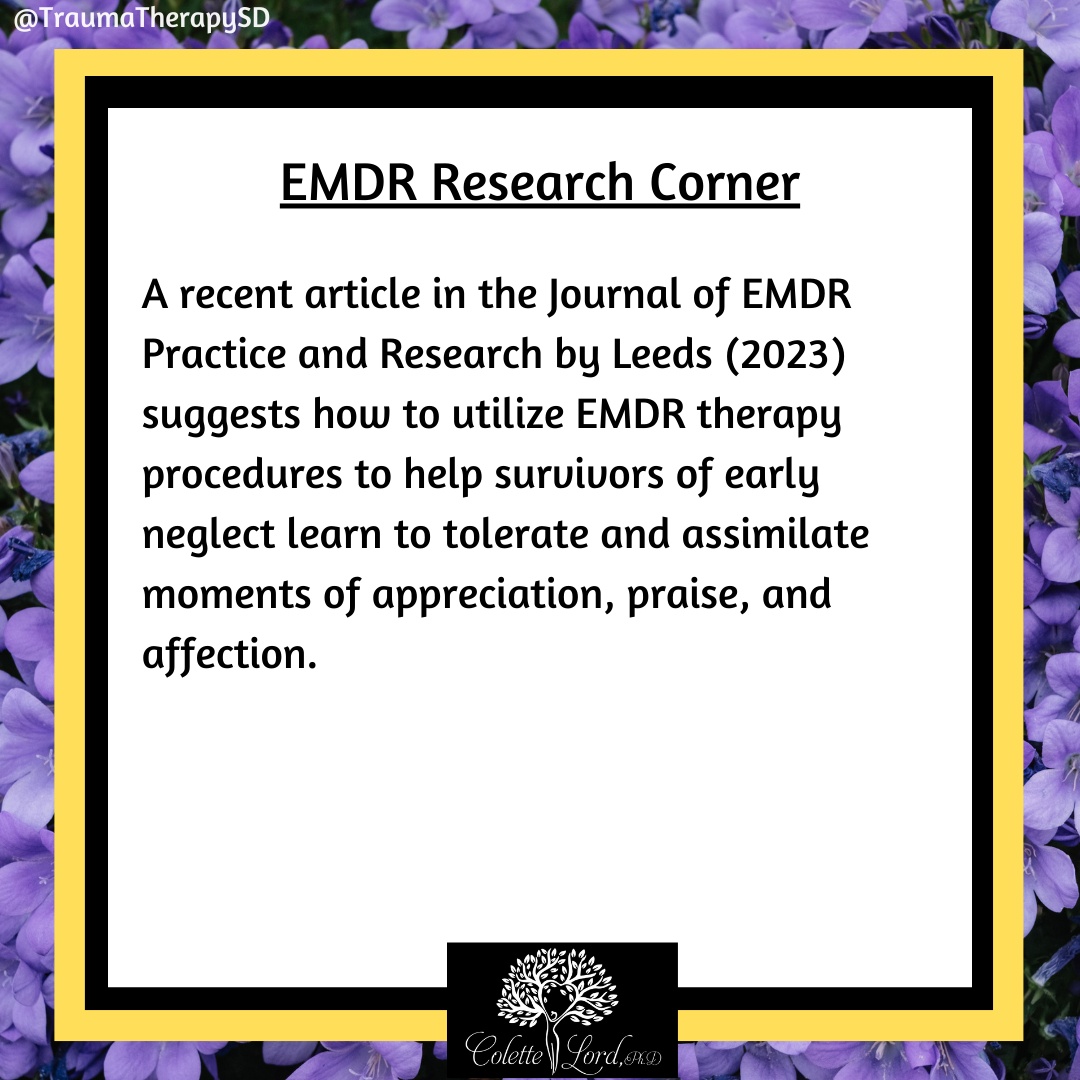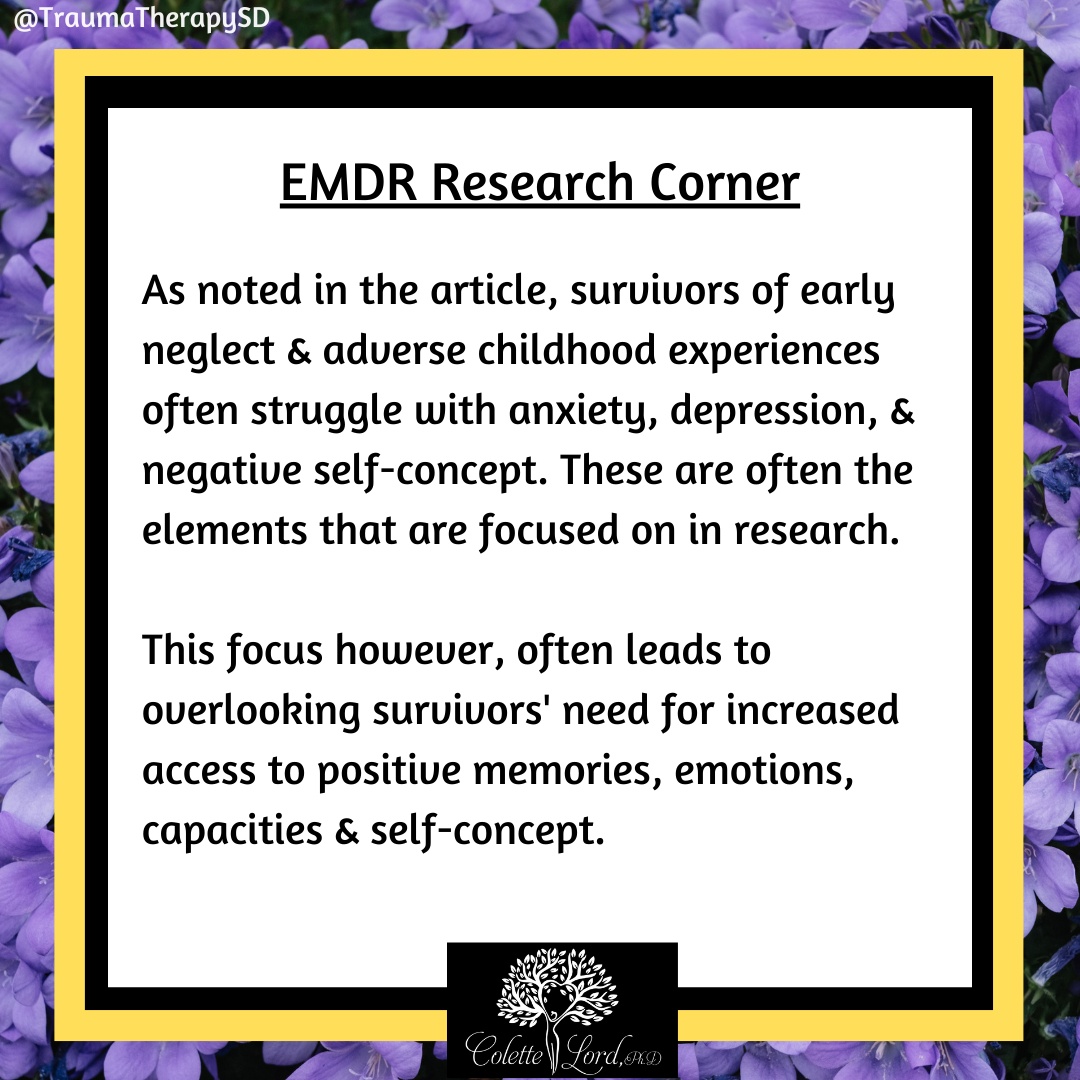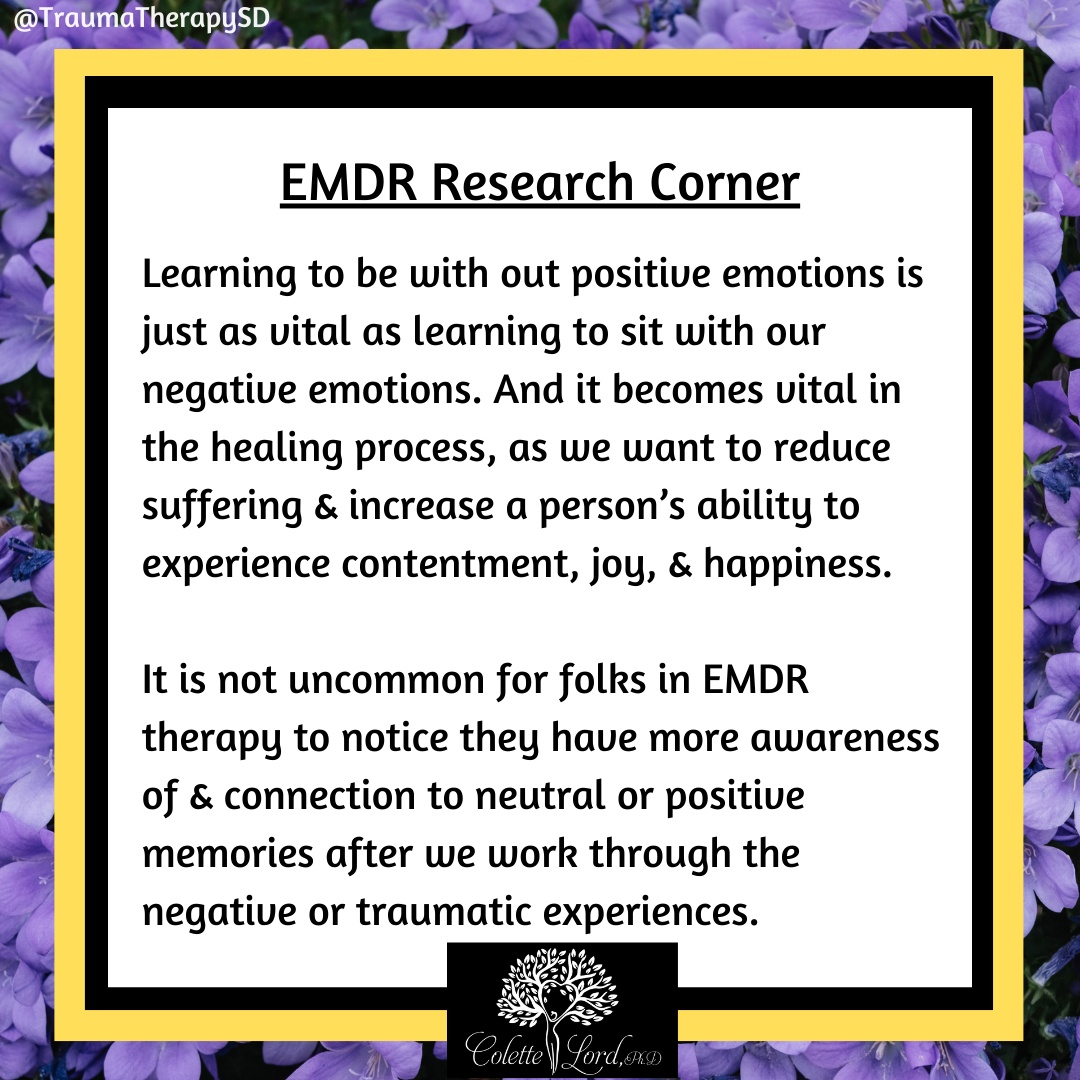EMDR therapy Research
A recent article in the Journal of EMDR Practice and Research by Leeds (2023) suggests how to utilize EMDR therapy procedures to help survivors of early neglect learn to tolerate and assimilate moments of appreciation, praise, and affection.
As noted in the article, survivors of early neglect and adverse childhood experiences often struggle with anxiety, depression, and negative self-concept. These are often the elements that are focused on in EMDR therapy research.
The focus on symptom reduction, however, often leads to overlooking the issue of survivor’s need for increased access to positive memories, emotions, capacities and self-concepts, which are often impaired with early neglect
This then is also associated with a lack of what we call positive affect tolerance, or the learned ability to be able to experience and tolerate positive emotions and experiences.
Learning to sit and be with out positive emotions is just as vital as learning to sit with our negative emotions. And it becomes particularly vital in the healing process, as we want to not only reduce suffering, but increase a person’s ability to experience contentment, joy, and happiness.
It is not uncommon for the people that I have worked with in therapy to notice that they have more awareness of and connection to neutral and positive memories after we start working through the negative or traumatic experiences.
This is great, but we can also utilize EMDR therapy to directly work on increasing positive affect tolerance and helping develop and build adaptive information into the persons awareness.
Adaptive information such as the fact that positive emotions are normal and natural, that having positive experiences do not mean that they are going to be punished by subsequent negative experiences, or that it is safe now to feel and express happiness.













